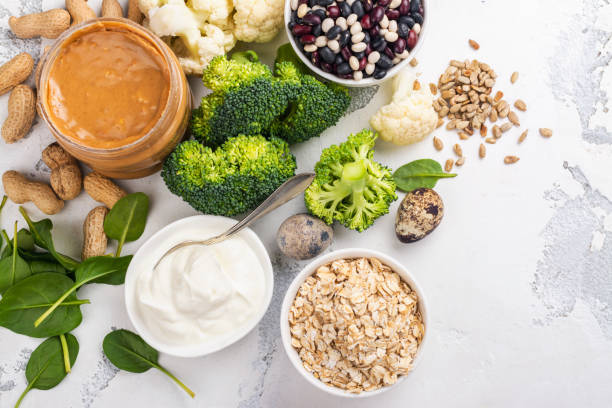In recent years, a sustainable dining trend has gained momentum worldwide, known as “Meatless Mondays.” This movement encourages individuals to forgo meat consumption every Monday and opt for plant-based meals instead. The idea behind Meatless Mondays is to reduce meat consumption, promoting health, environmental sustainability, and a mindful approach to dining.
What is Meatless Monday?
Meatless Monday is a global campaign that began in the United States during World War I. It was reintroduced in 2003 as a public health initiative, with the goal of improving individual and planetary health. The concept is straightforward: dedicate every Monday to eating meat-free meals. By choosing plant-based options one day a week, participants reduce their overall meat consumption and make a positive impact on their health and the environment.
The Benefits of Meatless Mondays
Meatless Mondays offer a range of advantages for both individuals and the planet.
1. Health and Nutrition
- Balanced Diet: Incorporating more plant-based foods into your diet provides essential nutrients and dietary fiber, supporting overall health and balanced nutrition.
- Reduced Risk of Chronic Diseases: Lowering meat intake can reduce the risk of chronic diseases such as heart disease, diabetes, and certain types of cancer. Plant-based diets tend to be lower in saturated fats and cholesterol, which are linked to these health conditions.
- Weight Management: Meatless Mondays can contribute to weight management and may help with weight loss efforts. Plant-based meals tend to be lower in calories while being satisfying and nutritious.
2. Environmental Sustainability
- Reduced Carbon Footprint: The meat industry is a significant contributor to greenhouse gas emissions. Choosing plant-based meals once a week can lower an individual’s carbon footprint.
- Preservation of Resources: Producing plant-based foods is often more resource-efficient than meat production. It conserves land and water, reduces deforestation, and minimizes the use of pesticides.
- Protection of Biodiversity: Reducing the demand for monoculture crops for animal feed helps protect biodiversity by reducing habitat destruction.
How to Participate in Meatless Mondays
Participating in Meatless Mondays is straightforward. Here’s how to get started:
1. Plan Meatless Meals
Plan your meals for every Monday with plant-based options. Experiment with different recipes and ingredients to keep things exciting and delicious.
2. Explore Meat Alternatives
Meat alternatives like plant-based burgers, tofu, tempeh, and seitan can mimic the taste and texture of meat while being entirely plant-based. These are excellent options for Meatless Mondays.
3. Engage in Community
Many individuals and communities participate in Meatless Mondays. Joining a Meatless Monday community or challenge can provide support, inspiration, and recipe ideas.
4. Make Informed Choices
Being mindful of the foods you choose can enhance your Meatless Monday experience. Opt for whole, unprocessed plant foods for maximum health benefits.
Challenges and Considerations
While Meatless Mondays offer numerous benefits, it’s essential to consider some potential challenges.
1. Nutrient Awareness
Ensure you receive adequate nutrients like protein, iron, and vitamin B12 through plant-based sources or supplements.
2. Balanced Choices
Focus on a balanced diet. Avoid overconsumption of highly processed meat alternatives, as they can be high in sodium and unhealthy fats.
3. Sustainable Sourcing
Opt for sustainably sourced plant-based foods. The impact of plant agriculture can vary, so choose products that align with your environmental values.
The Global Impact of Meatless Mondays
Meatless Mondays have made a significant impact globally. Here’s how this sustainable dining trend has influenced individuals and communities worldwide.
1. Health-Conscious Choices
Meatless Mondays have encouraged individuals to make healthier dietary choices. By reducing meat consumption, people aim to improve their overall health and well-being. This trend has contributed to the growing interest in plant-based diets.
2. Environmental Awareness
The campaign has raised environmental awareness. Participants now recognize the connection between their dietary choices and the health of the planet. They understand the importance of reducing meat consumption to combat climate change.
3. Community Engagement
Meatless Mondays have fostered community engagement. People from all walks of life come together to share plant-based recipes, culinary tips, and their experiences with the trend. This sense of community encourages sustainability and inclusivity.
4. Culinary Creativity
Meatless Mondays have inspired culinary creativity. Individuals and chefs alike experiment with new plant-based recipes, discovering exciting flavors and ingredients. This exploration of plant-based cuisine has broadened culinary horizons.
Meatless Mondays and Beyond
Meatless Mondays are just the beginning. This sustainable dining trend has shown that small, mindful changes in dietary habits can have a significant impact. Beyond Meatless Mondays, individuals are incorporating more plant-based meals into their diets, reducing their meat consumption, and exploring the many benefits of a plant-focused lifestyle.
Meatless Mondays offer a simple yet impactful way to promote personal health and environmental sustainability. By dedicating one day a week to plant-based meals, individuals can reduce their carbon footprint, lower the risk of chronic diseases, and contribute to sustainable land and resource use.
